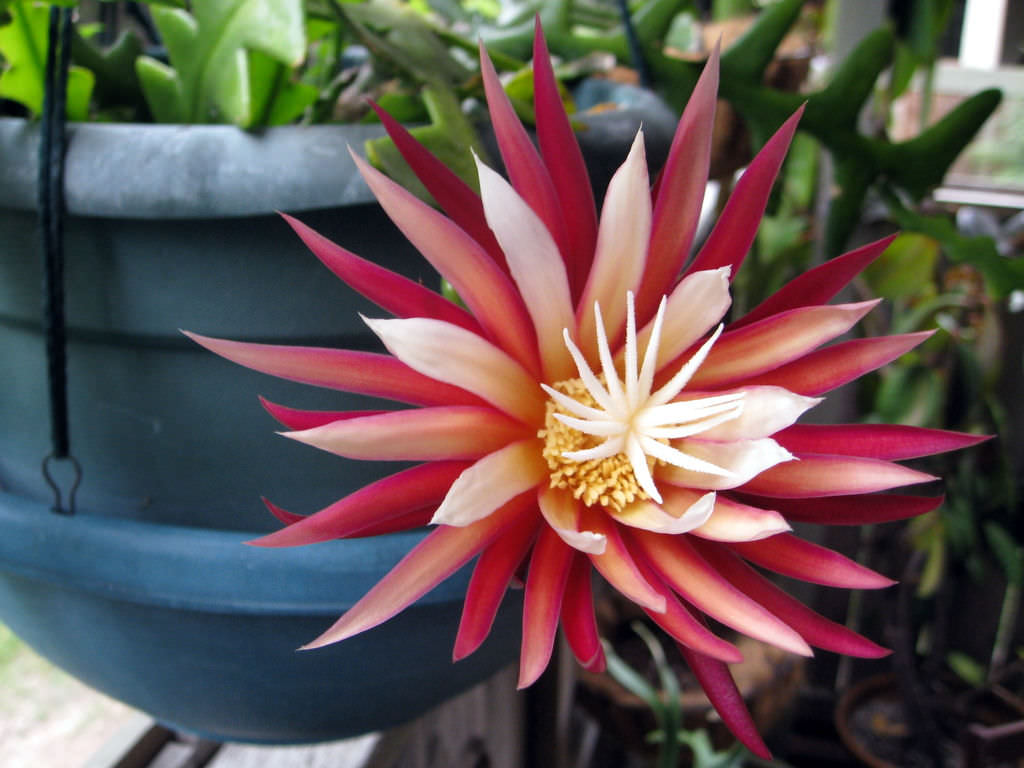
Selenicereus anthonyanus World of Succulents
The fishbone cactus ( Epiphyllum anguliger) has taken the plant world by storm. It's long, trailing stems feature a beautiful zigzag pattern that looks just as amazing in a pot on the shelf as it does in a hanging basket.
My fishbone cactus flowered today cactus
June 04, 2021 Plant Life The Fishbone Cactus is the edible and peculiar-looking plant popping up in your Instagram feed. It's easy to take care of and it grows pretty fast. Here's how to care for your Fishbone Cactus, the must-have crazy zigzag cactus for the black thumb gardener.
Fishbone cactus first bloom r/houseplants
The fishbone cactus is also known as the zig zag cactus, the ricrac cactus, or the orchid cactus, and it belongs to the genus Dislocates or Epiphyllum, depending on the source. The fishbone cactus is native to Mexico, where it grows as an aerophyte, attaching itself to the branches of trees in the jungle.
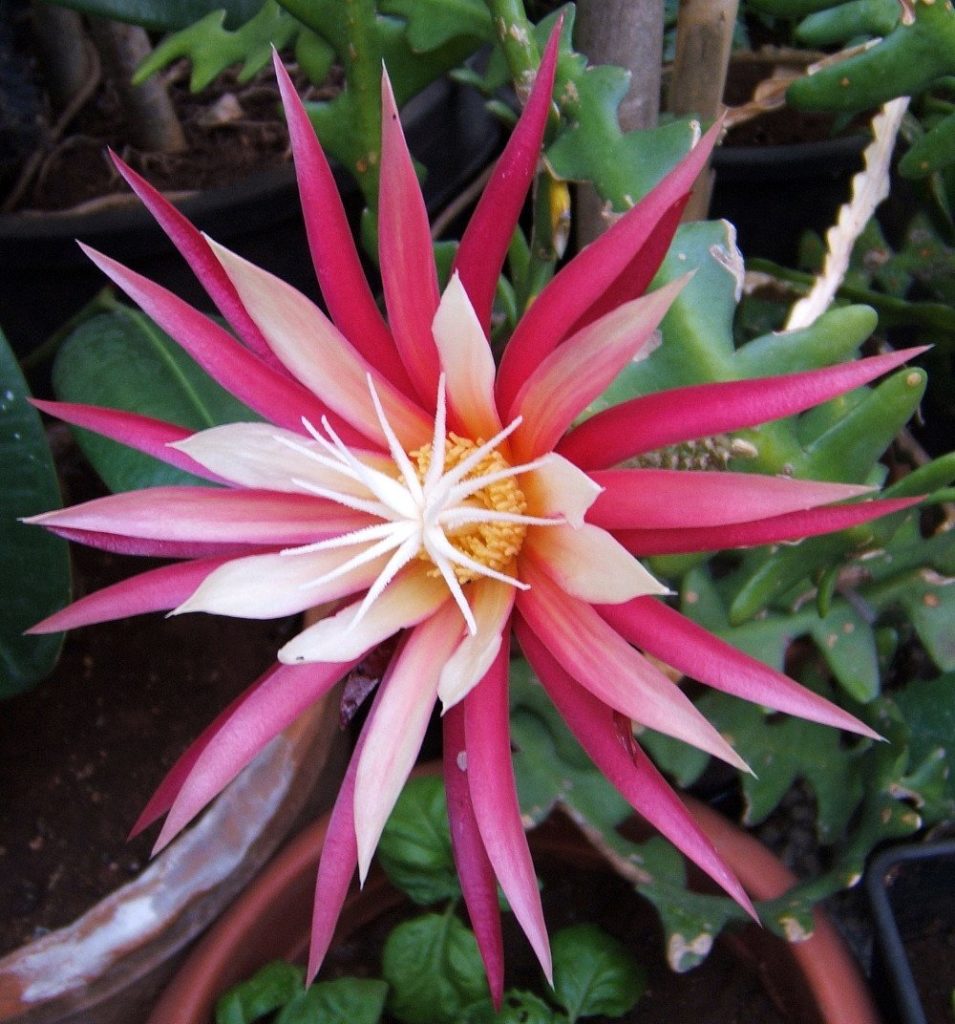
Zig Zag Cactus Ric Rac Fishbone Cactus _ How to Grow Houseplant 411
The fishbone cactus (Selenicereus anthonyanus) is an epiphytic plant native to the tropical rainforests of Mexico. In nature, it anchors itself in the nooks of trees and absorbs moisture and nutrients from the air and rain.
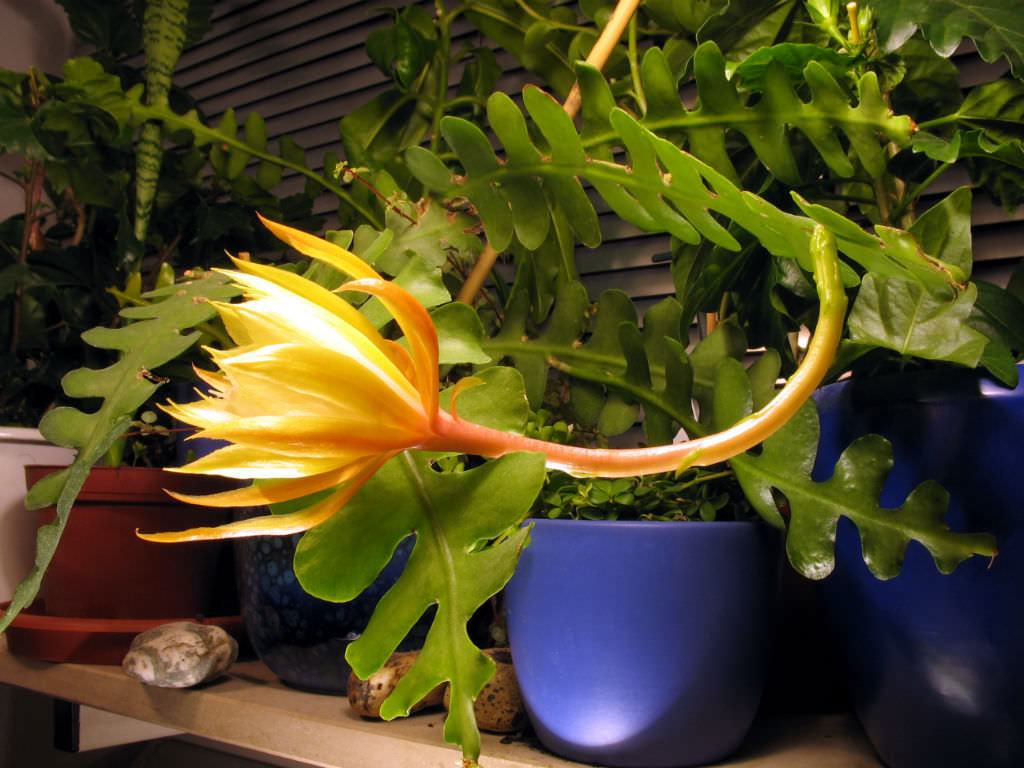
Epiphyllum anguliger Fishbone Cactus, Moon Cactus World of Succulents
last updated December 29, 2022 Fishbone cactus boasts many colorful names. Ric Rac, Zigzag and Fishbone orchid cactus are just a few of these descriptive monikers. The names refer to the alternate pattern of the leaves along a central spine that resembles a fish skeleton.
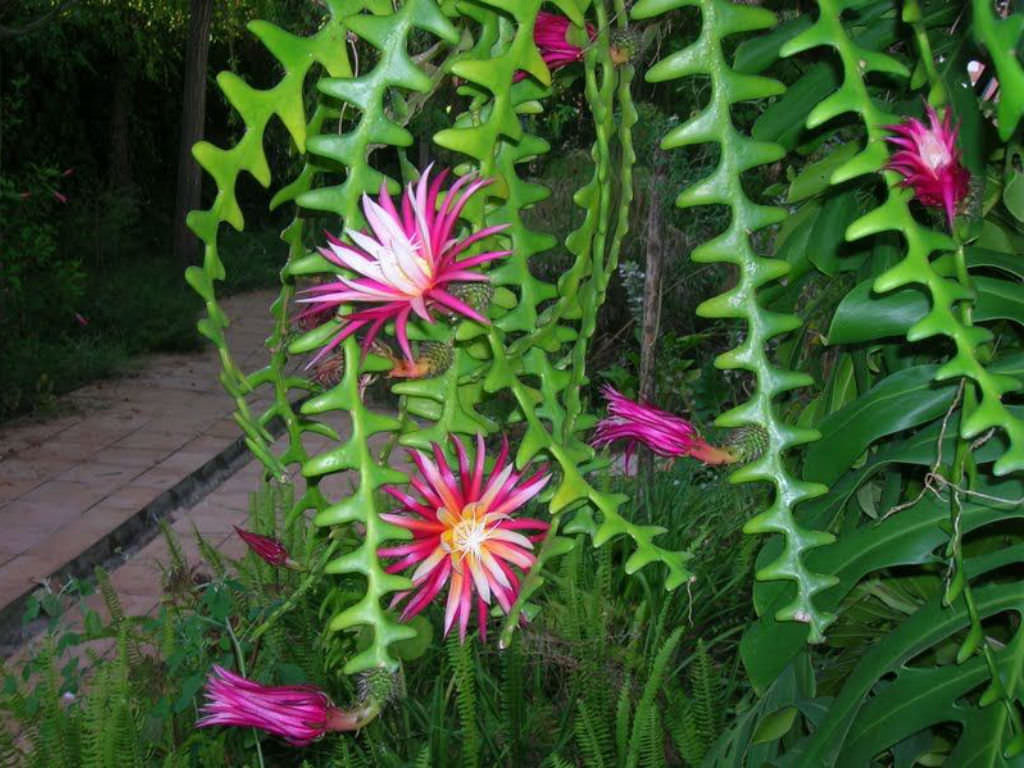
Selenicereus anthonyanus World of Succulents
Move the pot to a sunny spot where the temperature is between 60 and 75 degrees F. Dig a hole in the soil and place about one third of the leaf into the hole. Fill the hole with soil and leave it loose. Don't pack the soil around the leaf. Water the pot until water comes out of the drainage holes at the bottom.
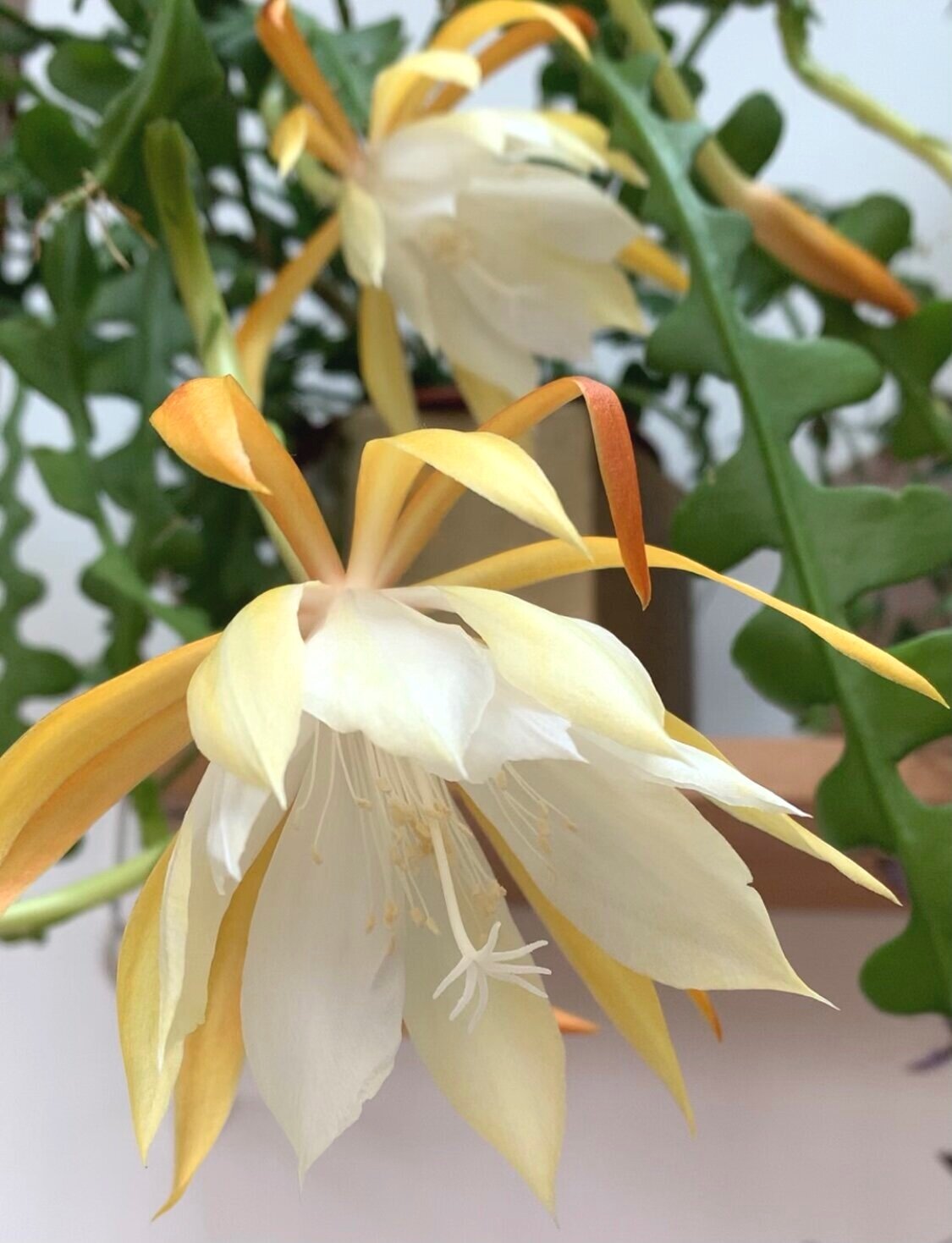
Plant Profile Fishbone Cactus (Epiphyllum anguliger) — Green Rooms Market
They flower reliably indoors and out, producing large blooms with interesting sepals surrounding delicate inner petals. At night, these flowers release a wonderful fragrance, unlike any other flower. Unlike many other houseplants, Epiphyllum anguliger will produce edible fruit indoors, making the plant even more exciting.
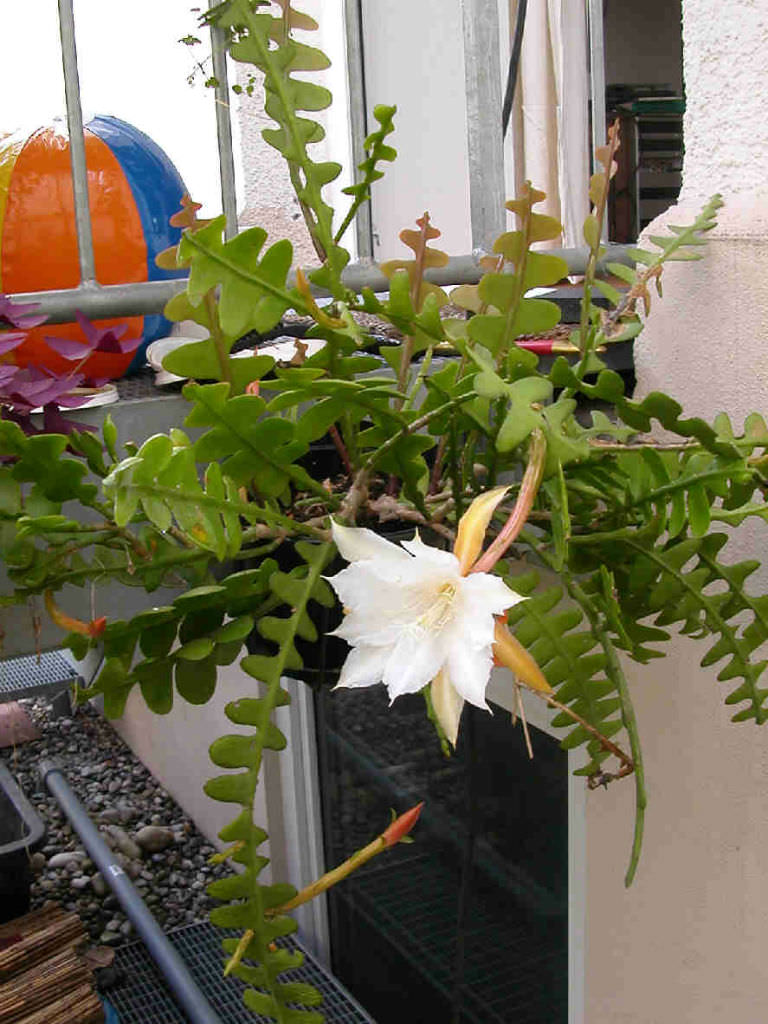
Epiphyllum anguliger Fishbone Cactus, Moon Cactus World of Succulents
In its native environment, the Fishbone Cactus produces fragrant nocturnal flowers, (which means they open up at night), that only last a day. However, these flowers are rarely produced by cacti grown indoors. Let's now dig deeper into the important things you need to know about the Fishbone Cactus! Here's my Fishbone Cactus!
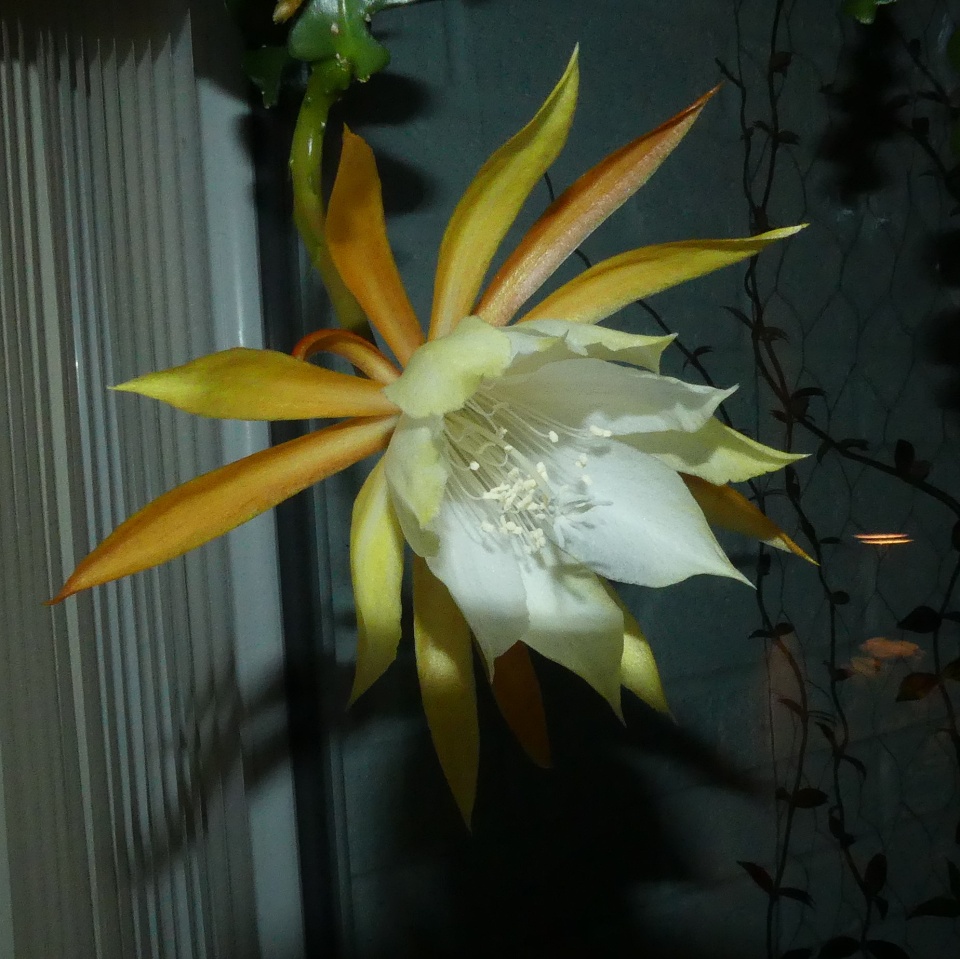
Amazing fishbone cactus flower serpentine Blipfoto
How to Plant, Grow and Care For Fishbone Cactus 2.58M 1.1M 2.8M 902K 85.1K Shop Edible Gardening Companion Planting Fruits Grains Harvesting Microgreens Nut Trees Ornamental Gardening Bulbs Cacti & Succulents Houseplants Shrubs Trees Vines Soil & Compost Fertilizers Soil Improvement Basics Accessible Gardens Homesteading Hydroponics

Epiphyllum oxypetalum WijayaKusuma Fishbone cactus Flickr
The fishbone cactus is an epiphytic cactus known for its extremely unique fishbone shape. Learn how to care for and propagate this cactus!

Fishbone Cactus Epiphyllum Anguliger Indoor Plants
The Fishbone Cactus, scientifically known as Epiphyllum anguliger, is characterised by its zig-zag patterned leaves, which bear a striking resemblance to a fish skeleton (hence the name). Originating from the tropical rainforests of Mexico, this unique species brings a touch of the exotic to any indoor space.
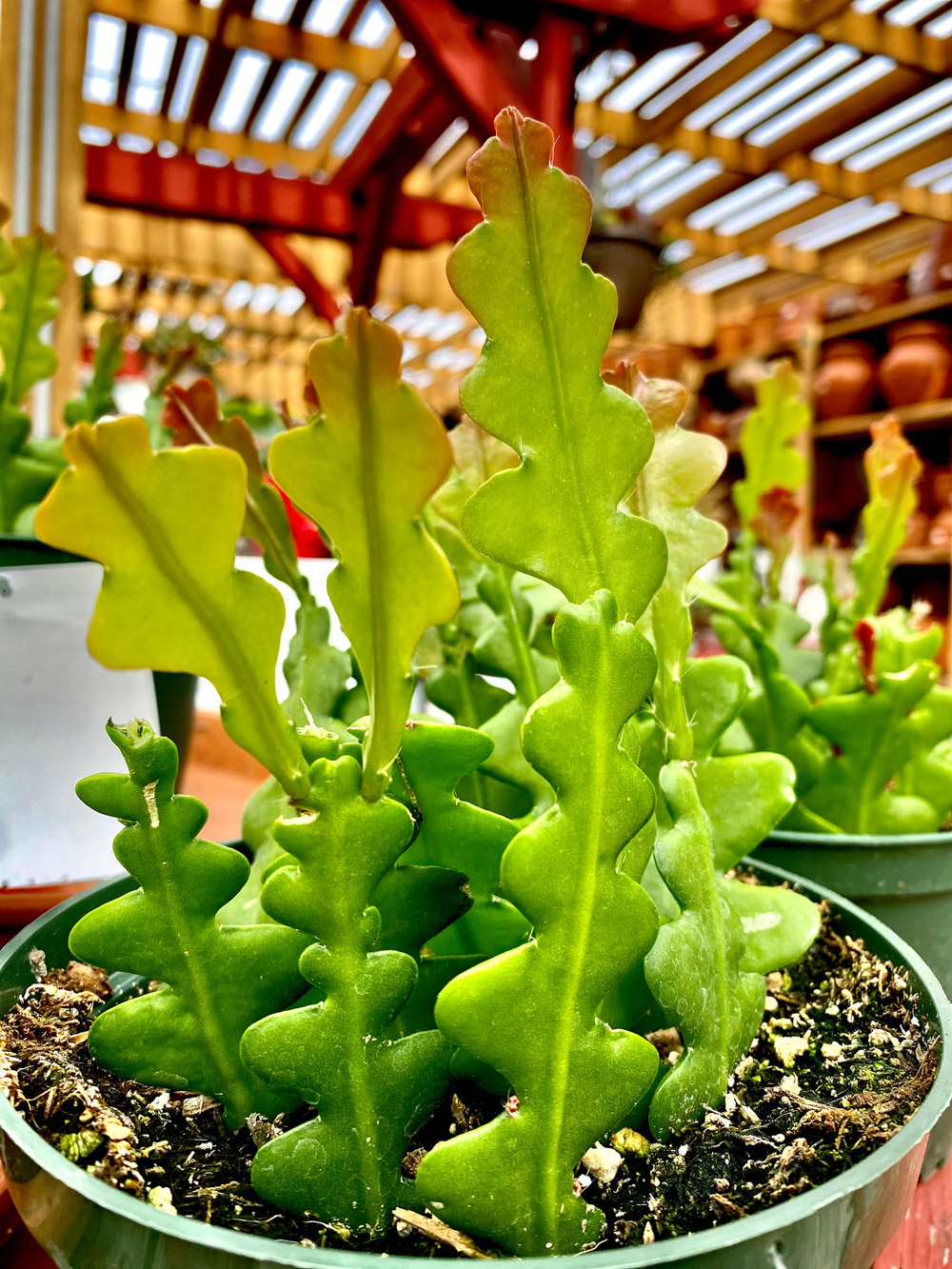
Fishbone Cactus Care How To Grow And Care For Zig Zag Cactus
The incredible fishbone cactus is a superstar houseplant. Get tips for watering, feeding, repotting, and overall plant care. Skip to primary navigation Skip to main content Skip to primary sidebar Cultivating curiosity and confidence Insects Garden pests Pest prevention Pollinators Beneficial insects Natural pest control Indoor plant pests
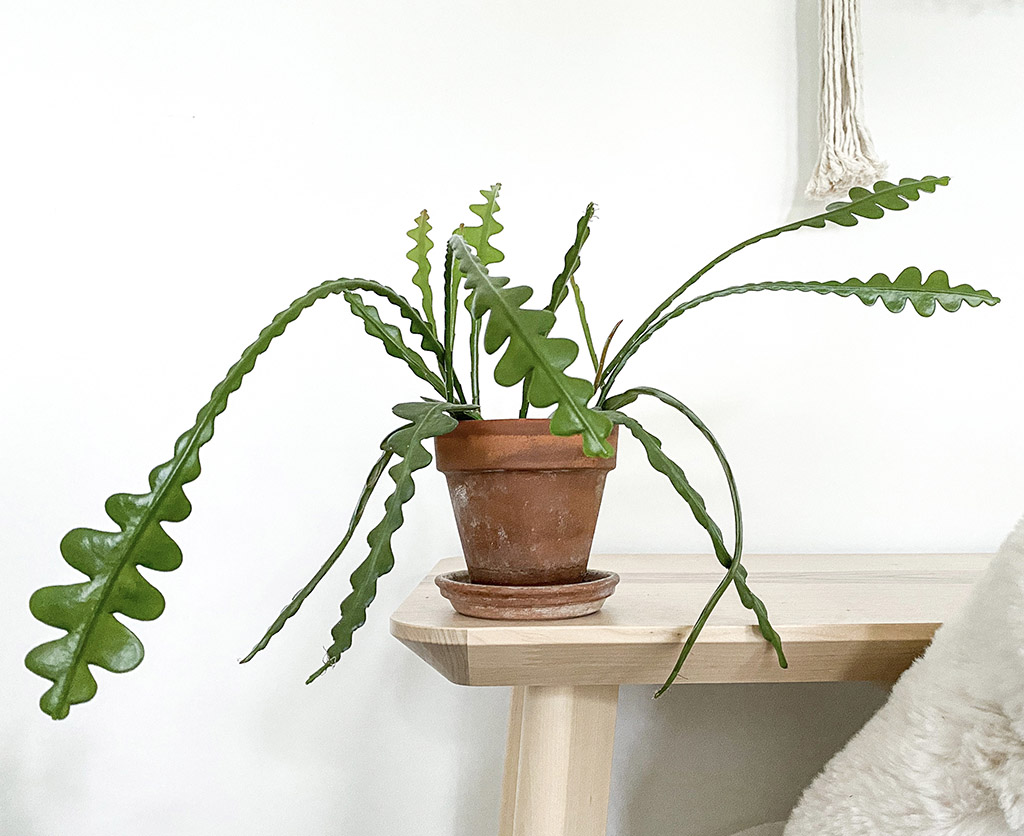
Fishbone Cactus The Few But Important Things You Need To Know
Fishbone Cactus Blooms After 3 Years Of Age. Fishbone cactus blooms frequently and abundantly in most cases. However, there is one exception: cactus blooms after 3 years of age, not immediately. Flowers begin blooming in mid-to-late spring and can last through July, but some varieties can produce buds twice a year.
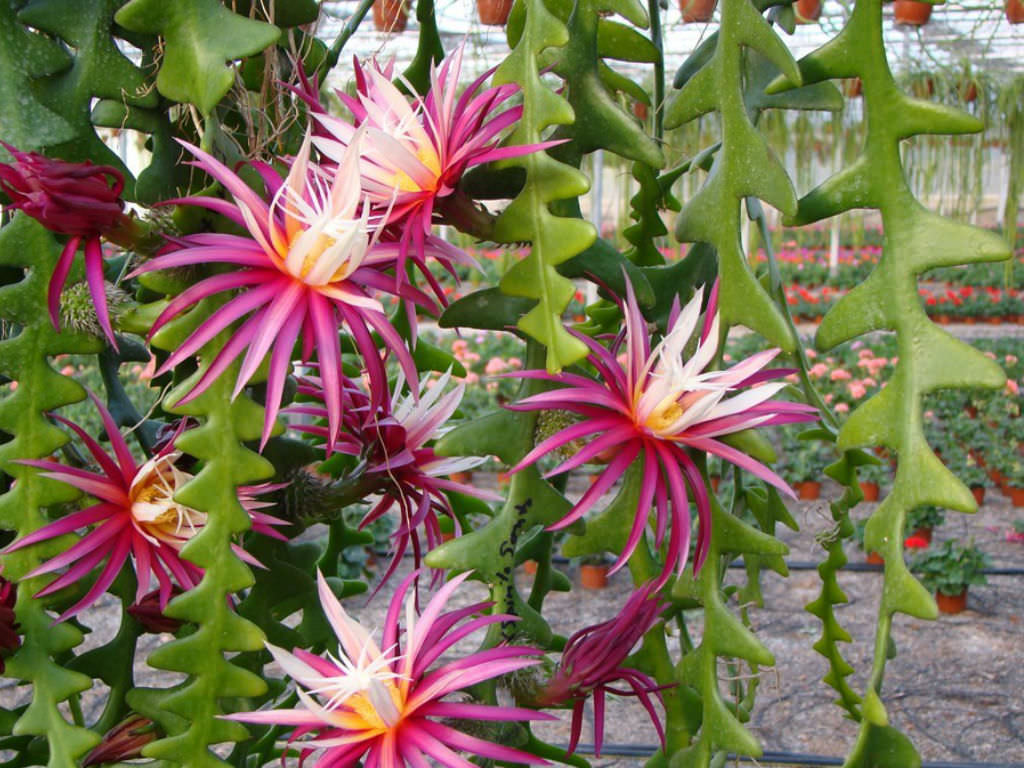
Selenicereus anthonyanus (Fish Bone Cactus) World of Succulents
Fishbone Cactus Flower. One of the highlights of caring for a fishbone cactus is the enchanting flowers it produces. These nocturnal blossoms open at night and exude a sweet, alluring fragrance. Typically, the flowers are white or pale yellow and can be 2.4-7.9 inches long and 2.4-2.8 inches wide.

Fishbone cactus Care Guide HOUSE PLANT HOUSE
Scientific name: Epiphyllum anguliger. Common names: Fishbone cactus, Zig Zag Cactus, or Ric Rac Cactus. The fishbone cactus is native to the tropical rainforests of Mexico. As an epiphytic cactus, it grows on other plants and trees in the understory of the forest, protected from direct sunlight
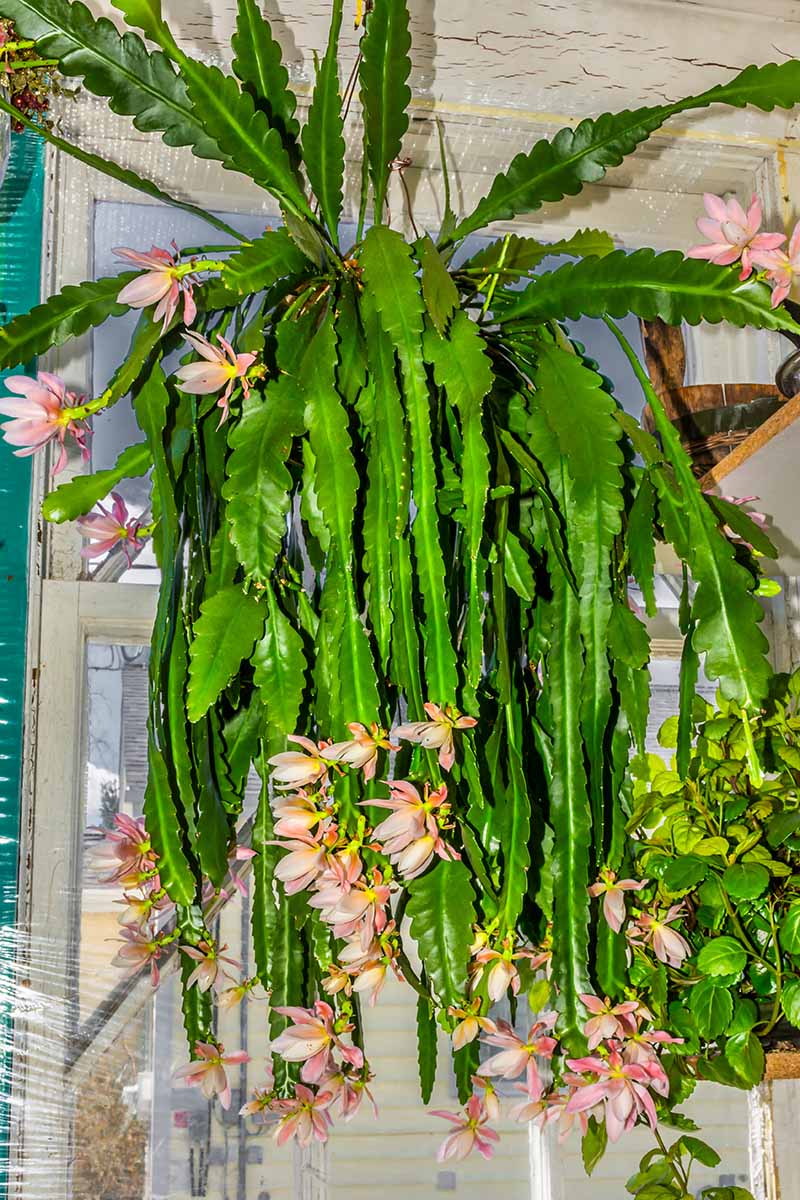
Fishbone Cactus Care Guide Gardening Hood
The fishbone cactus (also called the rat-tail cactus) is a member of the cactus family, and like all cacti, it produces flowers. However, the fishbone cactus is a rather unusual-looking plant, and its flowers are not particularly showy. In fact, they are often hidden among the plant's spines. For this reason, many people assume that the.